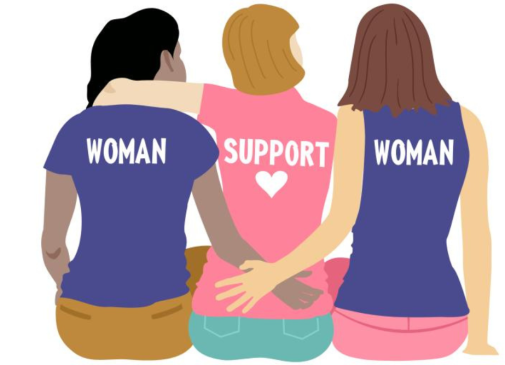
You’ve been feeling off lately. More trips to the bathroom than usual, a stubborn case of constipation, and a persistent bloat that’s making your favorite jeans feel like a tight squeeze. Despite a healthy diet, your digestion just isn’t cooperating. Pregnancy is out of the question, but the discomfort is real.
A visit to the doctor led to a series of tests, ruling out common culprits like IBS or colitis. But the mystery remains unsolved. As a last resort, your doctor suggested an ultrasound. Little did you know, this simple test would unveil a lesser-known uterine condition called adenomyosis.
What Is Adenomyosis?
Adenomyosis is a benign condition that occurs when tissue that normally lines the inside of the uterus grows into the muscular wall of the uterus. According to the Oxford Academic, 20% to 65% of U.S. women are affected by this condition, though it typically goes undiagnosed.
Women with adenomyosis can experience extremely painful symptoms such as:
- Painful, sharp cramps
- Severe, prolonged menstrual bleeding
- Blood clots passed during menstruation
- Discomfort during intercourse
- Bloating and a protruding abdomen
- Chronic constipation
- Frequent urination Issues with infertility
- Fatigue caused by anemia
It’s important to track your period length, severity, and heaviness to know if they are becoming unmanageable. Adenomyosis and stomach problems often get worse over time and can impede your daily life. If your periods or other symptoms are interfering with your everyday routine, you should see a doctor immediately.
Adenomyosis and Stomach Problems
Adenomyosis can cause a variety of digestive issues such as:
- Constipation, mild to severe
- Nausea caused by intense, sharp pain or constipation
- Frequent urination
Adenomyosis enlarges the uterus which can affect the bowels by putting excess pressure on your surrounding organs like the bladder, intestines, and rectum.
Digestive issues with adenomyosis are quite common, and women often feel like their body is out of control. Symptoms like these can be frustrating and stressful, especially if you’re out in public.
Until you can get treatment, make sure to be prepared with an extra change of clothing, locate convenient bathroom locations, and track your symptoms. Additionally, you can adjust your water intake before you leave the house or eat a healthy diet to help temporarily manage your symptoms.
Adenomyosis Causes an Enlarged Uterus
Depending on the severity of your adenomyosis you may experience an enlarged uterus. In severe cases, the thickening of the uterine wall causes a protruding abdomen, nicknamed “adenomyosis belly”.
An adenomyosis belly can sometimes resemble a pregnancy of almost three to six months. Adenomyosis bloating can become frustrating if you aren’t able to fit into your everyday clothes. It can also impact your self-esteem and confidence within social or intimate relationships.
If you are experiencing unusual menstrual cycles, such as heavy bleeding, severe cramps, or unexplained bloating, it might be time to consult a healthcare professional. Conditions like adenomyosis and fibroids can present similar symptoms, making it difficult to pinpoint the exact cause. A doctor can help you determine the exact cause and recommend appropriate treatment.
Is Adenomyosis Similar to Fibroids?
While adenomyosis and fibroids share similarities, they are distinct conditions. Fibroids are benign tumors that develop in the uterus, while adenomyosis involves endometrial tissue growing into the uterine wall.
Both conditions share symptoms like painful, prolonged menstruation, discomfort during sex, an enlarged uterus, fatigue caused by anemia, infertility, and bowel issues. A study by Brigham and Women’s Hospital showed that 80% of women with adenomyosis have other uterine issues, with 50% of patients also having uterine fibroids.
One of the most profound differences between fibroids and adenomyosis is the type and severity of cramps. With adenomyosis, pelvic pain may feel like a sharp, knife-like experience that becomes chronic over time. Many patients say severe abdominal pain can make them nauseous or bedridden. Women with fibroids often say their pain is constant, dull aching that feels like severe menstrual cramps with waves coming in and out – but not sharp.
How to Treat Extreme Bloating: Adenomyosis and Fibroids
Many women often live with painful symptoms for years before getting diagnosed. At Fibroid Fighters Foundation, we want you to know that you don’t have to live with adenomyosis, unexplained digestive issues, or other uncomfortable symptoms. If you’ve ever avoided going out with family or called in sick to work because of your symptoms, it’s time to find an effective treatment solution.
Give us a call at 855.455.5262 to learn more about treatment. You can also contact us online. We look forward to helping answer your questions about adenomyosis or fibroids and help get you back to a healthier, more active life. active life.







